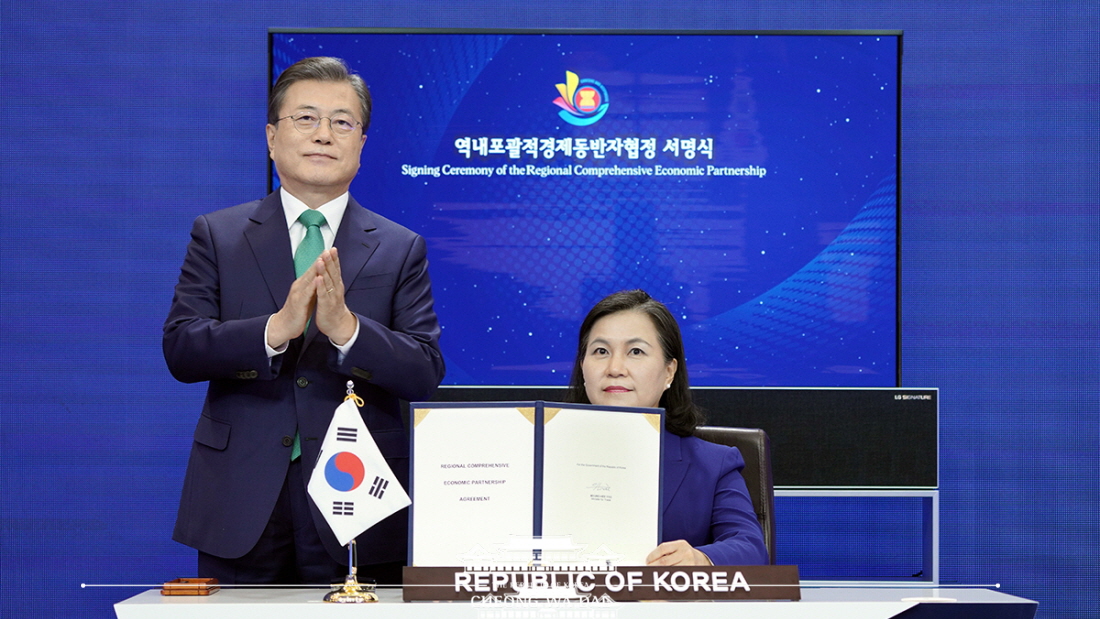이 웹사이트는 제19대 대통령 임기 종료에 따라 대통령기록관이 「대통령기록물 관리에 관한 법률」에 의해 이관받아 서비스하는 대통령기록물입니다. 자료의 열람만 가능하며 수정 · 추가 · 삭제는 불가능합니다.
다만, 「개인정보보호법」에 의하여 개인의 정보를 보호받기 원하시는 분은 관련 내용(요청자, 요청내용, 연락처, 글위치)을 대통령 웹기록물 담당자(044-211-2253)에게 요청해 주시면 신속히 검토하여 조치해 드리겠습니다. 감사합니다.
MEDIA

By Kim Hyelin and Lee Jihae
Korea on Nov. 15 signed the Regional Comprehensive Economic Partnership (RCEP), the world's largest free trade agreement.
At the RCEP summit and signing ceremony held via videoconferencing at Cheong Wa Dae, President Moon hailed the "historical moment" and said he firmly believes that the accord will transcend region in recovering multilateralism and contribute to the development of a free trade order.
Cheong Wa Dae Spokesperson Kang Min-seok quoted President Moon as saying that in the face of the challenges caused by COVID-19, the spread of trade protectionism and the crisis of multilateralism, the young and dynamic Association of Southeast Asian Nations (ASEAN) has taken center stage in protecting the value of free trade.
In a joint statement adopted at the ceremony, the member countries welcomed the agreement's signing amid the unprecedented COVID-19 crisis. They also confirmed that the RCEP has huge significance not only in that it will create jobs in the region, boost the supply chain network and overcome the pandemic, but also create a trade and investment system based on open, comprehensive and rule-based criteria.
The partnership is expected to additionally open markets in products, service and investment as well as improve overall standards in intellectual property rights, e-commerce, and small and medium businesses to create new opportunities for participating countries.
President Moon said the RCEP has the optimal conditions for leading the post-COVID-19 era, predicting that it will lower regional trade barriers to enable the free movement of people, products and corporations.
The RCEP is a multilateral free trade agreement among the ten ASEAN member states, Korea, China, Japan, Australia and New Zealand. These 15 countries account for 30% of the world's trade volume, GDP and population.
***



